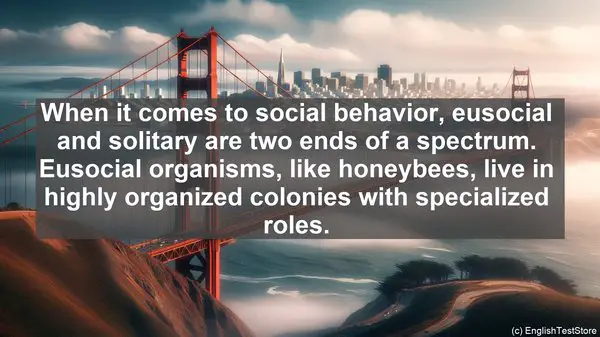Introduction
In the fascinating world of behavioral ecology, it’s crucial to have a strong grasp of the terminology. However, some words often trip us up. Today, we’ll explore the top 10 commonly confused words in this field. Let’s dive in!

1. Altruism vs. Cooperation
While both altruism and cooperation involve individuals working together, there’s a key distinction. Altruism refers to selfless acts that may come at a cost to the individual, benefiting others. Cooperation, on the other hand, involves individuals working together for mutual benefit. So, while both involve collaboration, altruism is more about self-sacrifice.
2. Innate vs. Learned
When we talk about behaviors, we often encounter the terms innate and learned. Innate behaviors are those that an organism is born with, like reflexes. Learned behaviors, on the other hand, are acquired through experience or observation. So, while innate behaviors are instinctual, learned behaviors are acquired over time.
3. Territory vs. Home Range
Territory and home range are both areas that animals occupy, but there’s a difference. A territory is actively defended against intruders, while a home range is simply the area an animal frequents. So, think of a territory as a ‘no trespassing’ zone, while a home range is more like a ‘regular hangout’ area.
4. Migration vs. Dispersal
Migration and dispersal are terms often used in the context of animal movement. Migration refers to the regular, often seasonal, movement of a population from one area to another and back. Dispersal, on the other hand, is the one-time movement of individuals away from their birthplace. So, migration is more about round trips, while dispersal is a one-way journey.
5. Eusocial vs. Solitary
When it comes to social behavior, eusocial and solitary are two ends of a spectrum. Eusocial organisms, like honeybees, live in highly organized colonies with specialized roles. Solitary organisms, on the other hand, live and operate alone. So, while eusocial organisms are all about teamwork, solitary organisms are self-reliant.
6. Fitness vs. Fecundity
In the realm of reproductive success, fitness and fecundity are often mentioned. Fitness refers to an organism’s overall reproductive success, taking into account survival and offspring production. Fecundity, on the other hand, specifically refers to the number of offspring an organism produces. So, while fitness is about overall success, fecundity is more about sheer numbers.
7. Kin Selection vs. Group Selection
When it comes to the evolution of social behaviors, kin selection and group selection are two important concepts. Kin selection is the idea that certain behaviors can evolve because they benefit relatives who share genes. Group selection, on the other hand, suggests that behaviors can evolve because they benefit the group as a whole. So, while kin selection is more about helping relatives, group selection is about helping the entire group.
8. Monogamy vs. Polygamy
In the realm of mating systems, monogamy and polygamy are frequently discussed. Monogamy refers to a mating system where an individual has only one partner. Polygamy, on the other hand, involves having multiple partners. So, while monogamy is about exclusivity, polygamy is about having multiple mates.
9. Mutualism vs. Commensalism
When it comes to ecological interactions, mutualism and commensalism are often encountered. Mutualism is a type of interaction where both species benefit. Commensalism, on the other hand, is an interaction where one species benefits, but the other is unaffected. So, while mutualism is a win-win, commensalism is a one-sided benefit.

10. Prevalence vs. Abundance
In population ecology, prevalence and abundance are two important measures. Prevalence refers to the proportion of individuals in a population that have a certain trait or condition. Abundance, on the other hand, refers to the total number of individuals in a population. So, while prevalence is about proportion, abundance is about sheer numbers.
